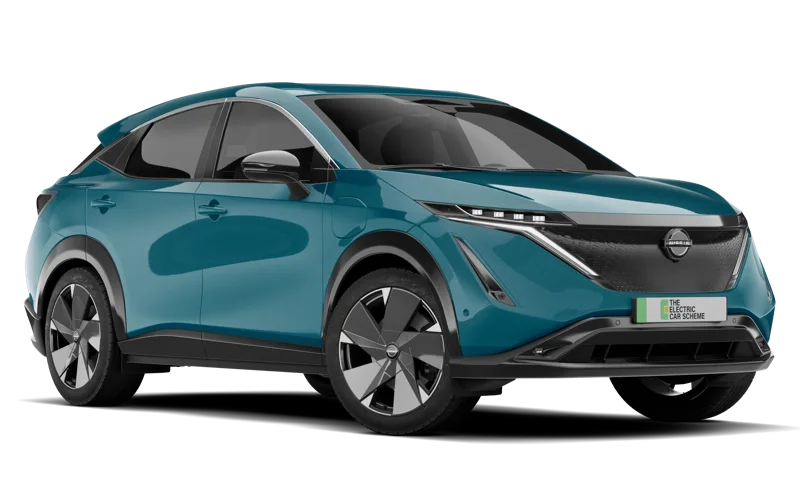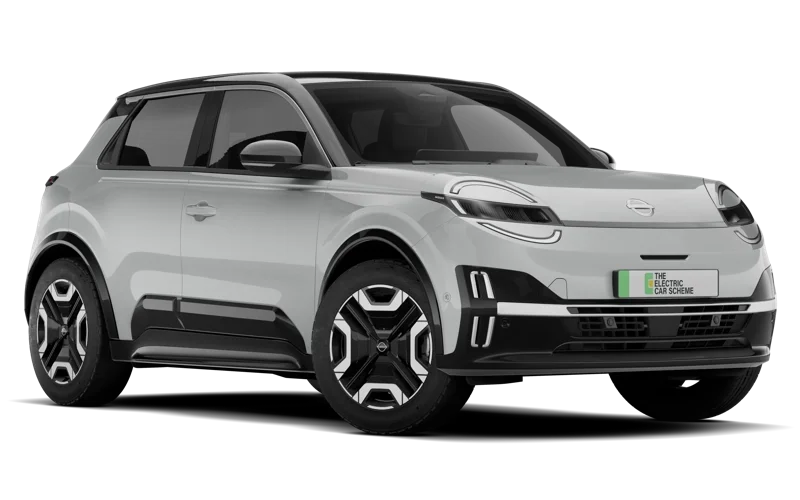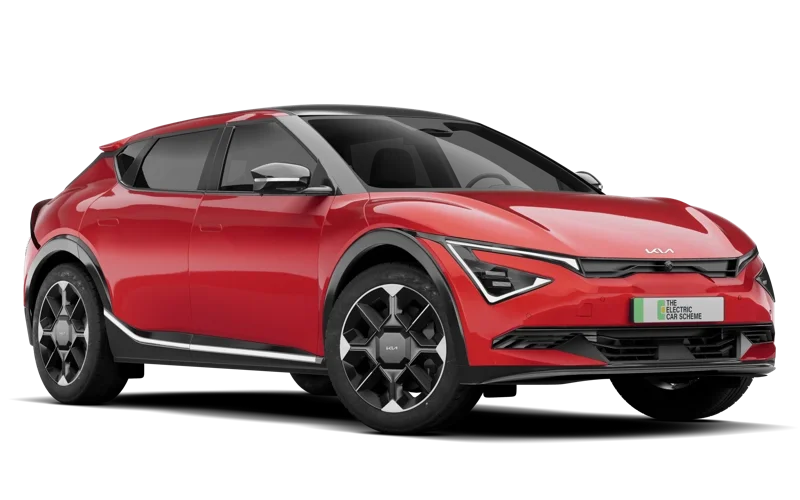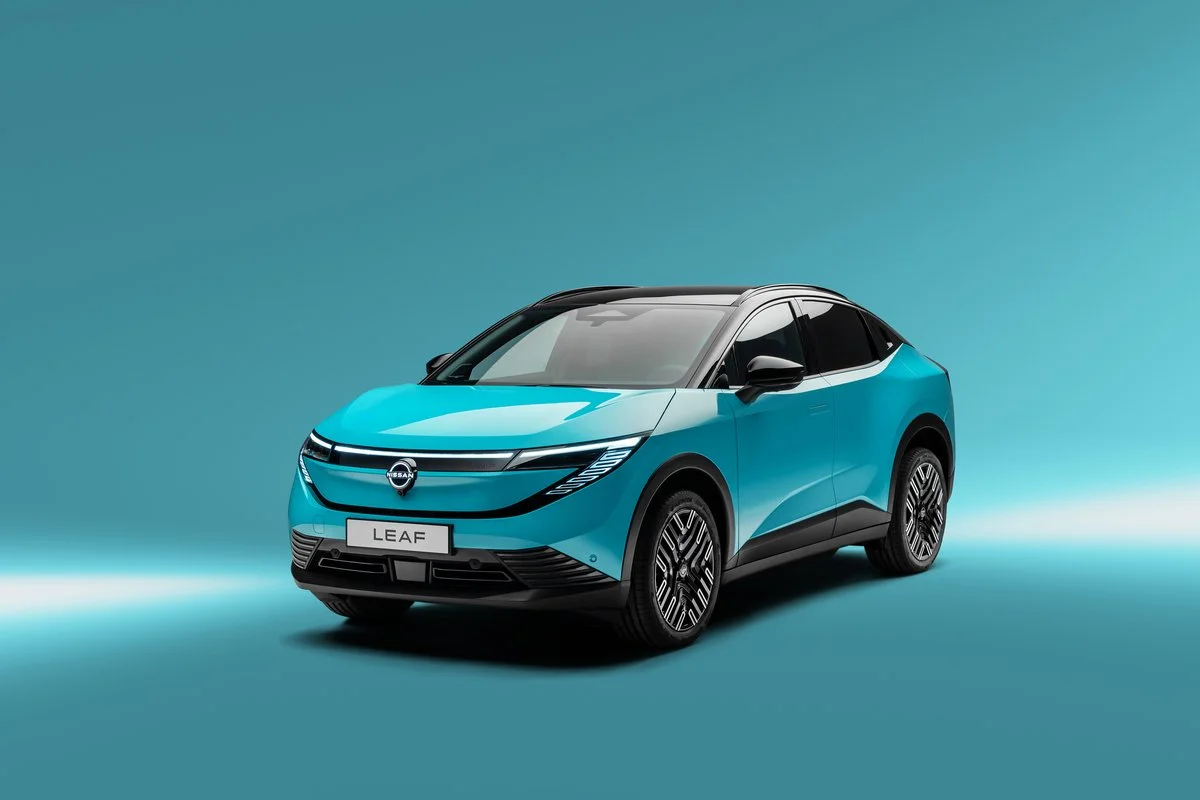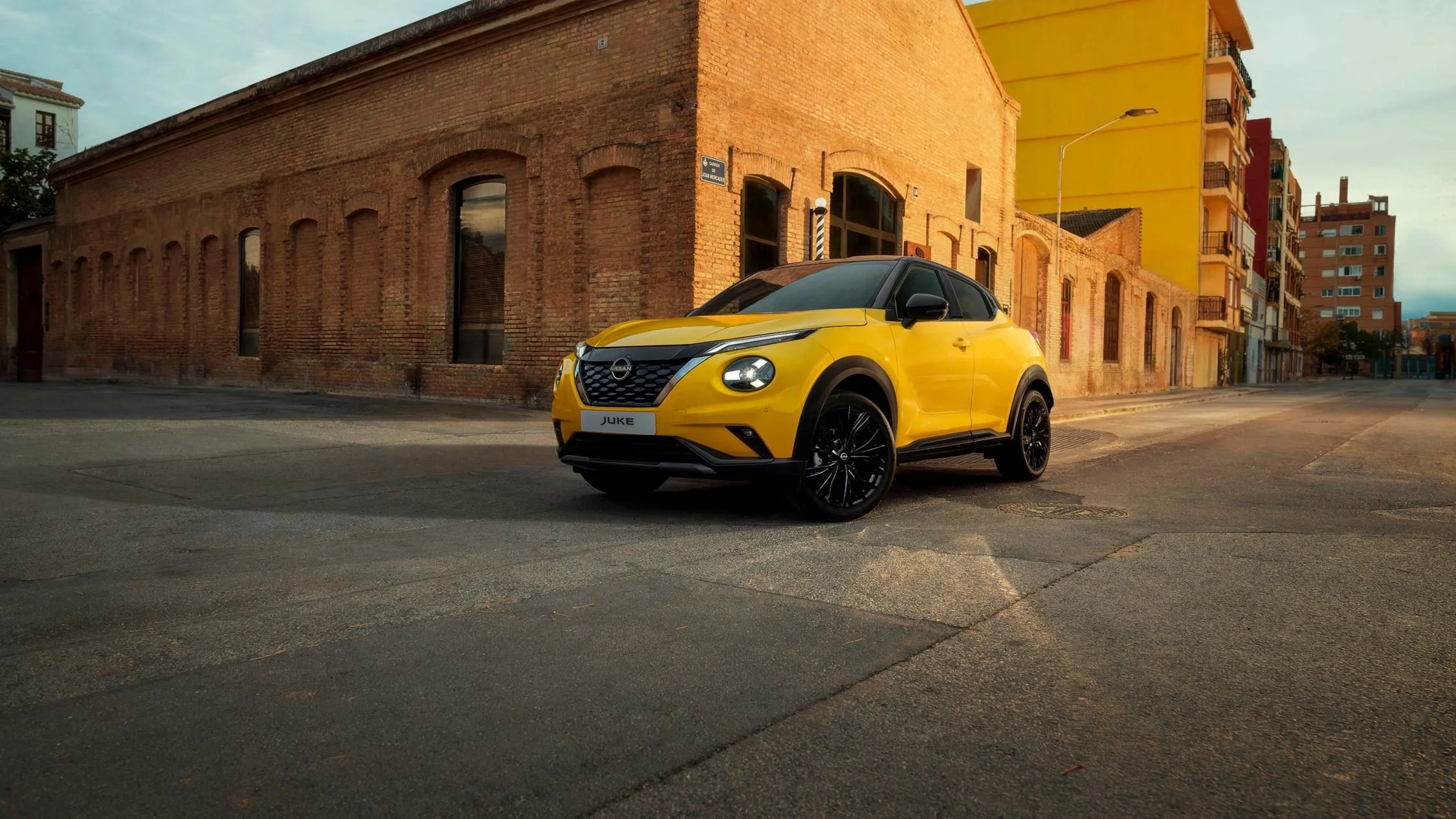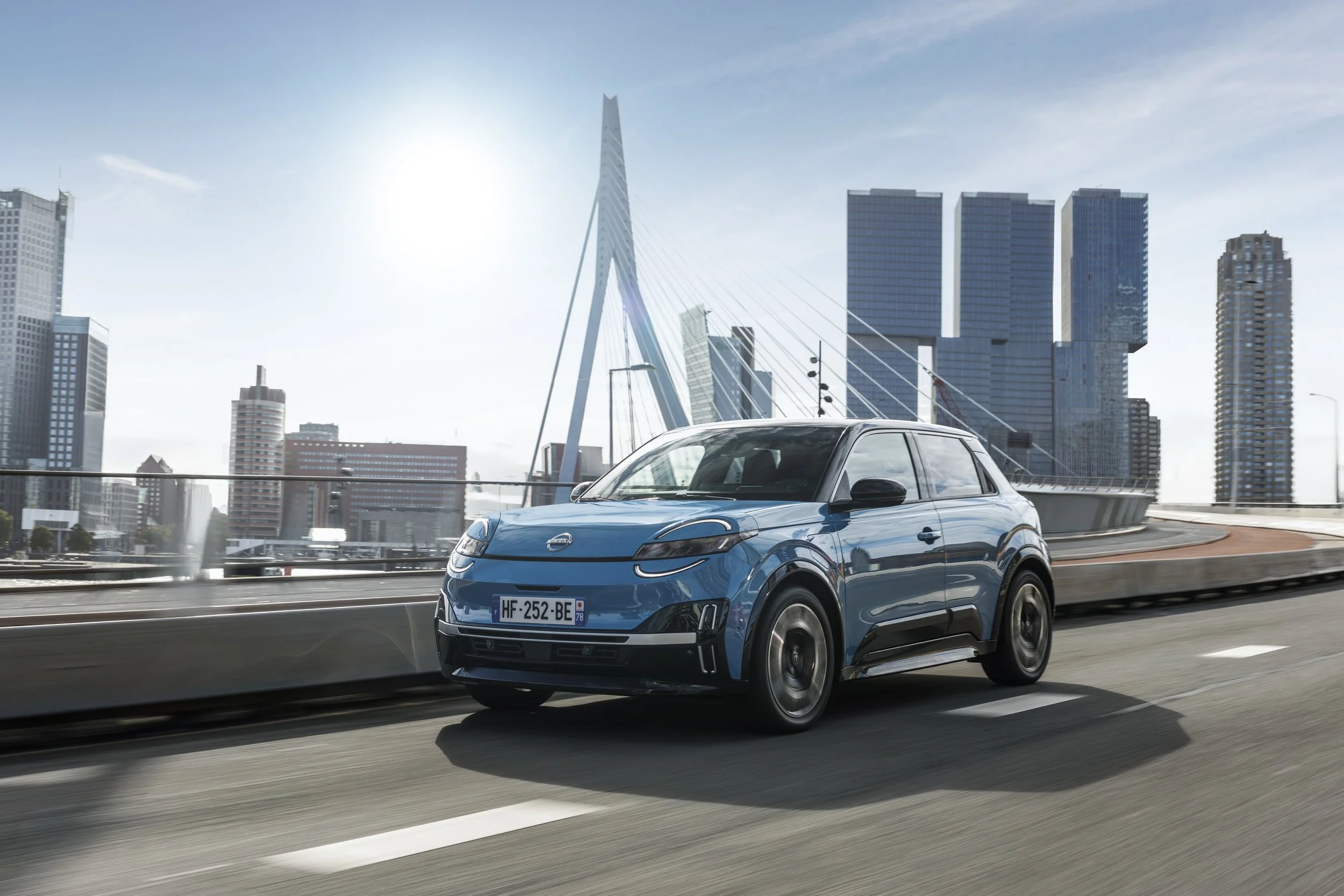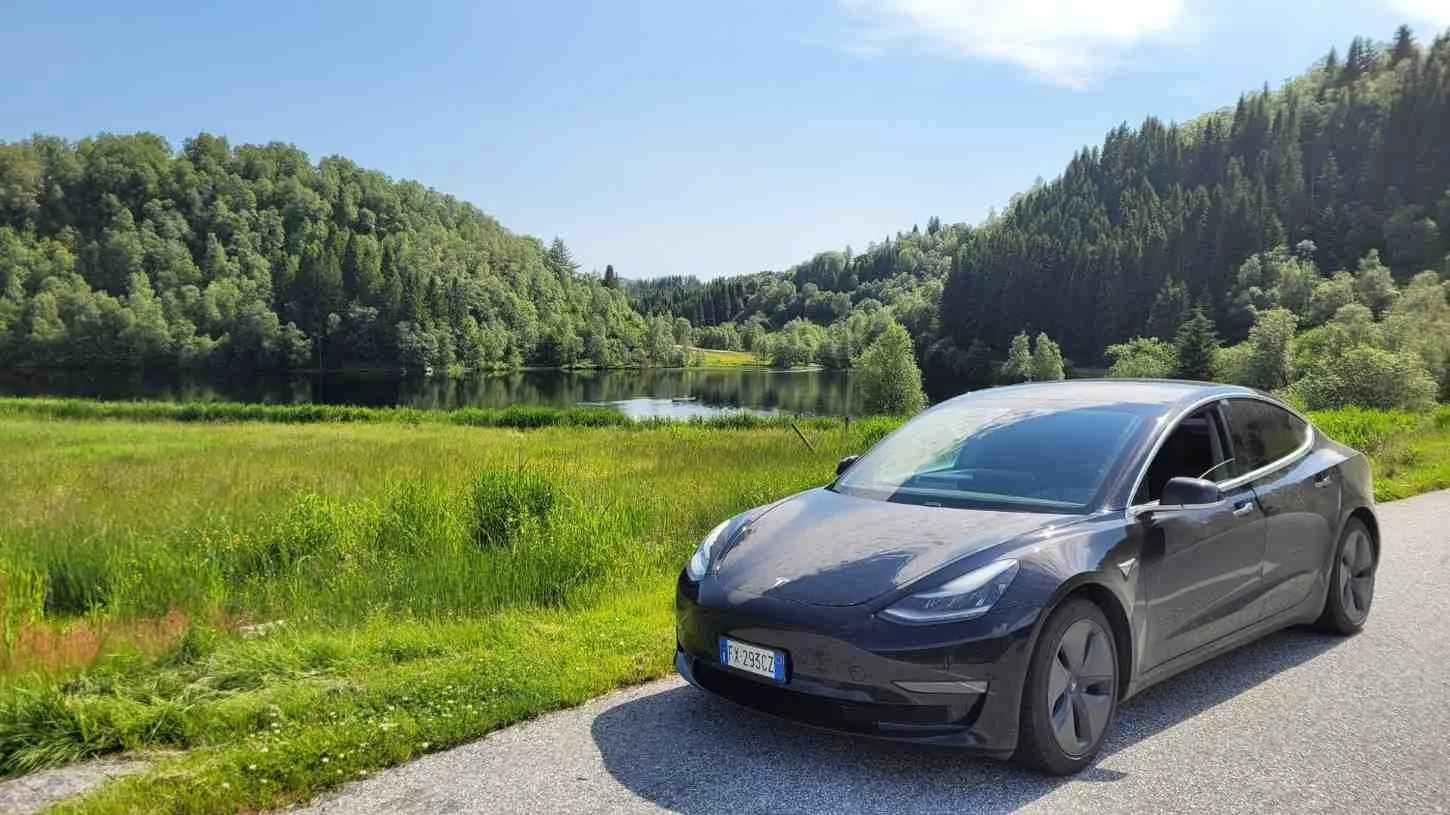Nissan Electric & Hybrid Cars 2026: Ariya SUV vs New Leaf Crossover
Source: Nissan Press Gallery
Nissan didn't just enter the electric car market; they created it when they launched the world's first affordable EV in 2011. Today, with over 270,000 Leafs built in Sunderland and a £3 billion transformation underway, Nissan remains a smart choice for UK salary sacrifice schemes, offering reliability and tax benefits.
This guide covers everything you need to know about Nissan's electric cars, from the current Ariya SUV to exciting new models arriving through 2026. We'll explore real-world reliability, help you choose the right model, and show you exactly how much you could save through salary sacrifice.
Nissan Electric Cars Overview & EV Pioneer Heritage
The Nissan Leaf launched in March 2011 as the world's first mass-produced, affordable electric vehicle, establishing the blueprint for modern EVs with its £30,000 pricing and 73-mile range. This was the first electric vehicle to win the European Car of the Year, pitched against 40 competitors.
However, the electric vehicle landscape has changed significantly since 2011, with competitors launching compelling alternatives. Nissan's challenge today is proving its credentials still matter when buyers can choose from dozens of electric vehicles across every price segment. The good news? Nissan isn't standing still. March 2024 marked the end of original Leaf production, but also the beginning of Nissan's £3 billion transformation with three new electric models launching through 2026 and breakthrough solid-state battery technology arriving in 2028.
Nissan Ariya: Premium Electric SUV
Starting from £33,500 (after £1,500 government grant)
The Nissan Ariya offers premium quality without the eye-watering price tags of its competitors, especially now that it’s eligible for the £1,500 government grant!
What you get:
Engage (63kWh): 250 miles range, 214hp, £33,500 after grants
Advance (87kWh): 329 miles range, 238hp, £39,200 after grants
Evolve (87kWh): 329 miles range, 238hp with premium trim, £46,000 after grants
NISMO (87kWh): 289 miles range, 435hp performance flagship, £56,630
Dual 12.3" displays, wireless Apple CarPlay, and heat pump technology
Real-world range of approximately 280 miles (summer), dropping to 210-240 miles during winter months
130kW DC charging (35 minutes for 10-80%) and comprehensive three-year warranty
The Ariya is perfect for families, with wide-opening doors, a smooth driving experience and a spacious, high-tech interior. This EV is available with a 67kWh or 87kWh battery and optional e-4ORCE all-wheel drive. This is considered a versatile, low-cost EV that will get you from A to B whilst making sure you enjoy the journey.
Nissan Micra EV (2025): Available at The Electric Car Scheme!
Starting at just £22,995, the Micra EV becomes one of the UK's most affordable new electric cars. Built on Renault's collaboration platform with proven technology, this compact EV is great for zipping around the city (and for parallel parking).
Key features:
40kWh battery (198 miles) and 52kWh battery (260 miles) options
90-110kW power outputs with 80-100kW DC charging
325 litres of luggage capacity!
Shared platform technology reduces development costs
European manufacturing, allowing for competitive pricing
The 2025 Nissan Micra is available to lease from The Electric Car Scheme. Visit our salary sacrifice calculator to see how much you can save.
Nissan Leaf: The Original (Final Models)
Last produced in March 2024, available used from £15,000
Believe it or not, the discontinued Leaf is still relevant to this conversation 14 years on! The final 2024 Leaf models started at £28,440, with consumers choosing between a 40kWh and 62kWh battery.
Why the used Leaf makes sense:
Established reliability record with 95.6% What Car? reliability score
Large boot space (420L) and comfortable five-seat accommodation
Comprehensive UK dealer network with trained EV technicians
Proven battery technology with 8-year/100,000-mile warranty
CHAdeMO charging compatibility (though less convenient than CCS)
The Leaf's mechanical simplicity and proven track record make it an excellent choice for first-time EV buyers or those looking for reliable electric transport without complexity or premium pricing.
Nissan's Electric Strategy
Nissan's transformation centres on a £3 billion commitment to UK electric vehicle production and breakthrough battery technology. This isn't just talk, it's the largest single EV manufacturing investment in Europe, positioning Sunderland as a production hub whilst advancing solid-state battery commercialisation. This project (named EV36Zero) creates an integrated electric ecosystem combining vehicle assembly, battery manufacturing, and renewable energy generation.
Nissan's platform strategy emphasises efficiency and cost reduction. The CMF-EV architecture will support multiple models from the redesigned Leaf through Ariya and future SUVs, sharing development costs across high-volume production. Meanwhile, collaboration with Renault on the AmpR Small platform allows for competitive EV pricing whilst maintaining distinct Nissan characteristics.
Most significantly, Nissan aims to achieve carbon neutrality and zero-emission vehicles by 2050, while making electric cars more accessible to everyone. In the meantime, they’re looking to improve their ‘electrification sales mix.’ The breakthrough solid-state batteries arriving in 2028 promise to restore Nissan's competitive edge with double energy density and faster EV charging. The EV9 seven-seat SUV genuinely redefines luxury electric family transport through award-winning design and sustainable materials.
Next-Generation Nissan EVs (New Leaf, Micra, Juke)
Two new Nissan electric cars are due to arrive soon, representing the brand's biggest transformation in recent years. These UK-built models target every major market segment with competitive pricing and advanced technology.
New Leaf (early 2026): From Hatchback to Crossover
The third-generation Nissan Leaf transforms from family hatchback to sleek crossover SUV, built on the proven CMF-EV platform. While official pricing hasn't been confirmed, industry sources suggest the entry-level model will start around £30,000, making this more affordable than German alternatives whilst matching Korean specifications.
Specifications include:
52kWh battery (270 miles) and 75kWh battery (375 miles) options
214hp power output with industry-leading 0.25 drag coefficient
Sunderland manufacturing allows for competitive pricing
Modern styling addressing the previous generation's divisive appearance
Image source: Nissan Press Gallery
Electric Juke (FY2026): Popular Crossover Goes Electric
Nissan's distinctive Juke crossover joins the electric fleet in 2026, completing the brand's mainstream EV transformation. Expected specifications include 250-300 miles range with potential all-wheel-drive variants.
All three models benefit from:
UK Sunderland production reduces Brexit-related costs
Shared platform technology improves reliability and reduces prices
Government Investment Zone benefits support competitive pricing
Comprehensive dealer network for sales and service support
Image source: Official Nissan website
Nissan Plug-in Hybrids (PHEVs)
Nissan also offers several mild-hybrid and full hybrid options in the UK, such as the Qashqai e-POWER, X-Trail e-POWER, and Juke Hybrid. These models provide impressive economy (up to ≈ 63 mpg) and reduced CO₂ emissions, offering a practical alternative for those not ready to go fully electric.
Nissan doesn’t offer any plug-in hybrid (PHEV) models in the UK. This is a deliberate strategy: the brand has chosen to focus on e-POWER hybrid technology and full EVs instead of developing plug-in systems.
Nissan believes e-POWER offers many of the same everyday benefits as a PHEV, smooth, electric-like drive and low fuel use, without the need to charge. By simplifying its line-up, Nissan can focus its investment on next-generation electric vehicles and solid-state batteries arriving in 2028. If a Nissan PHEV were introduced in the future, it would likely feature a 10–20 kWh battery with 20–50 miles of electric range and attractive BiK rates.
However, at The Electric Car Scheme, we currently only offer plug-in hybrids (PHEVs) through salary sacrifice. So, while Nissan’s e-POWER models (like the Qashqai and X-Trail) are great for efficiency and comfort, they aren’t eligible under our scheme.
Nissan EV Technology & e-POWER
Nissan's technology story combines pioneering achievements with honest admission of early limitations and exciting future breakthroughs that could restore competitive advantage.
e-POWER: The Clever Hybrid Alternative
Nissan's unique e-POWER system uses petrol engines purely as generators, whilst electric motors provide all driving power. This clever approach delivers EV-like driving characteristics without range anxiety, achieving 42% thermal efficiency in third-generation systems. This is available in the Nissan Qashqai e-Power and the all-new Nissan X-Trail E-Power
Current Technology: Learning from Early Mistakes
The Ariya addresses first-generation Leaf limitations through liquid-cooled battery thermal management, CCS charging standard adoption, and advanced e-4ORCE all-wheel-drive systems. ProPilot Assist semi-autonomous technology and one-pedal driving maintain Nissan's user-friendly approach, whilst Google-integrated infotainment replaces outdated proprietary systems.
However, current 130kW charging speeds lag behind Korean competitors' 233kW capability, requiring 35 minutes for 10-80% charging versus 18 minutes for Kia EV6. This can affect long-distance travel convenience, but it remains adequate for most daily usage patterns.
Solid-State Batteries: The Game-Changer Arriving 2028
Nissan's breakthrough solid-state battery technology promises transformational improvements by 2028. The Yokohama pilot production facility began operations in January 2025, targeting:
Double energy density - longer range without larger batteries
Three times faster charging - competitive with petrol refuelling
Cost reduction to enable price parity with petrol cars
Production EVs are achieving cost parity with internal combustion engines
Future Features Coming to New Models
Vehicle-to-grid capability supporting home energy systems
Enhanced connectivity with over-the-air software updates
Improved autonomous systems building on ProPilot success
Bi-directional charging enables your car to power your home
These improvements address previous criticism about outdated technology, whilst positioning Nissan for a competitive advantage in the late 2020s when solid-state batteries arrive in production vehicles.
Nissan Electric Reliability & Real-World Experience
Source: Nissan Press Gallery
Nissan's EV reliability presents a mixed but ultimately positive picture.
The Good News: Proven Mechanical Reliability
The Leaf achieved an impressive 95.6% reliability score in What Car? survey, ranking second among 18 electric cars, with only 11% of vehicles experiencing problems. Motor and inverter reliability has been excellent, with few reported failures of core electric drivetrain components across hundreds of thousands of vehicles globally.
Mechanical simplicity reduces traditional maintenance requirements: no oil changes, fewer moving parts, and minimal routine servicing compared to petrol cars. The comprehensive UK dealer network provides better coverage than newer EV brands, with established parts supply and trained technicians available nationwide.
Battery Performance: Much Improved
Early Leafs suffered battery degradation due to passive air cooling, with range declining from 150 miles to 120 miles at 100,000 miles in extreme cases. However, current liquid-cooled systems show significantly improved longevity with minimal degradation reports from Ariya owners.
The 8-year/100,000-mile battery warranty covers degradation below 75% capacity - rarely triggered in real-world use, but providing peace of mind for long-term ownership.
Electronics: The Learning Curve
Some electronic issues affect newer models, including early Ariya problems with 12V battery replacements and occasional warning lights without a clear cause. However, these issues typically resolve through software updates and dealer service visits covered under warranty.
Dealership service quality varies between locations - some provide excellent EV support, whilst others require patience during the learning process. Overall, warranty support has been reasonable for genuine manufacturing defects.
Real-World Owner Experience
Most Nissan EV owners report positive long-term experiences, particularly appreciating low running costs, quiet operation, and smooth acceleration. Used Leaf values remain stable due to established market recognition, supporting a sensible total cost of ownership.
The key advantage over newer EV brands? Proven track record with real-world data from hundreds of thousands of vehicles rather than promises about future reliability.
Nissan Electric Car Salary Sacrifice Benefits
You should consider a Nissan if you’re choosing a car to salary sacrifice because its competitive pricing combines with generous government tax benefits to create great value for UK employees.
Outstanding BiK Tax Rates
Electric vehicle BiK rates remain low at 4% (from April 2026), rising gradually to 9% by 2029-30. Compare this to petrol and diesel cars facing up to 37% BiK rates, and the savings become substantial.
Government Grants Stack with Salary Sacrifice
The £1,500 Electric Car Grant automatically reduces Ariya pricing to £33,500, stacking with salary sacrifice benefits for maximum cost reduction. This positions Nissan EVs amongst the most affordable options in their segments when accessed through workplace schemes.
Salary Sacrifice Cost Breakdown
If you’re a 40% taxpayer, travelling 10,000 miles per year over a 4-year lease, here’s how much you can expect to pay if you choose to salary sacrifice a Nissan Ariya or Micra.
| Savings breakdown | Nissan Ariya Advance (63kWh) | Nissan Ariya Nismo (87kWh) | Nissan Micra Engage (40kWh) |
|---|---|---|---|
| Average monthly salary sacrifice (inc VAT | £537 | £938 | £509 |
| Employee income savings | -£215 | -£375 | -£204 |
| Employee national insurance savings | -£11 | -£19 | -£10 |
| Average benefit-in-kind tax over term | £71 | £103 | £42 |
| Net cost/You pay | £383 | £648 | £337 |
Want to see exactly how much you could save? Head to our salary sacrifice calculator and input your salary, lease terms and your chosen car to get a personalised quote that shows your potential savings.
For UK buyers, Nissan represents the practical choice emphasising reliability, local manufacturing, and financial benefits through salary sacrifice scheme. Nissan delivers dependable electric cars without premium pricing or complexity. You can learn more about salary sacrifice by visiting our advice hub, or if you want your employer to offer this great benefit at your workplace, you can convince your company today.
Are you an employer?
BOOK A DEMOAre you an employee?
SEE AVAILABLE CARSYou might also like…
Last updated: 11/11/2025
Our pricing is based on data collected from The Electric Car Scheme quote tool. All final pricing is inclusive of VAT. All prices above are based on the following lease terms; 10,000 miles pa, 36 months, and are inclusive of Maintenance and Breakdown Cover. The Electric Car Scheme’s terms and conditions apply. All deals are subject to credit approval and availability. All deals are subject to excess mileage and damage charges. Prices are calculated based on the following tax saving assumptions; England & Wales, 40% tax rate. The above prices were calculated using a flat payment profile. The Electric Car Scheme Limited provides services for the administration of your salary sacrifice employee benefits. The Electric Car Scheme Holdings Limited is a member of the BVRLA (10608), is authorised and regulated by the FCA under FRN 968270, is an Appointed Representative of Marshall Management Services Ltd under FRN 667174, and is a credit broker and not a lender or insurance provider.
Copyright and Image Usage: All images used on this website are either licensed for commercial use or used with express permission from the copyright holders, in compliance with UK and EU copyright law. We are committed to respecting intellectual property rights and maintaining full compliance with applicable regulations. If you have any questions or concerns regarding image usage or copyright matters, please contact us at marketing@electriccarscheme.com and we will address them promptly.


